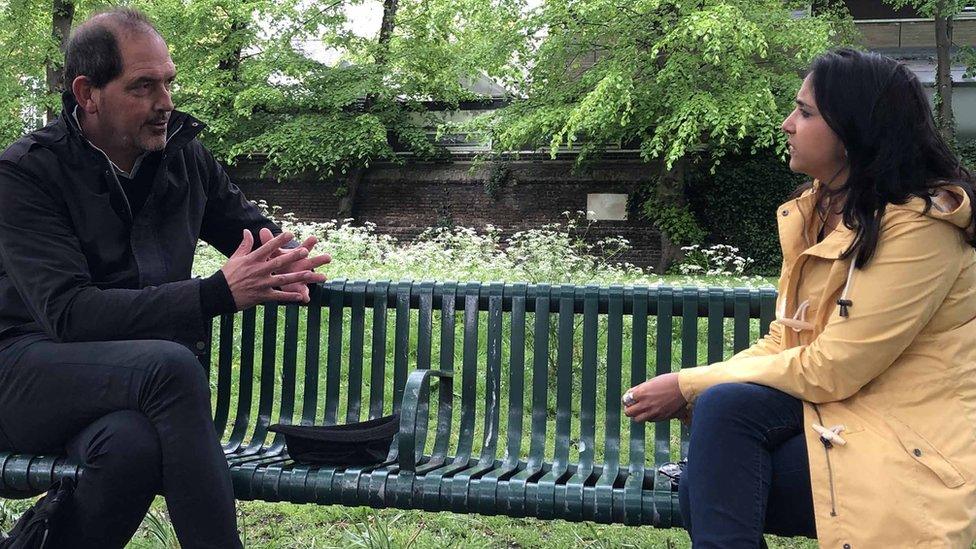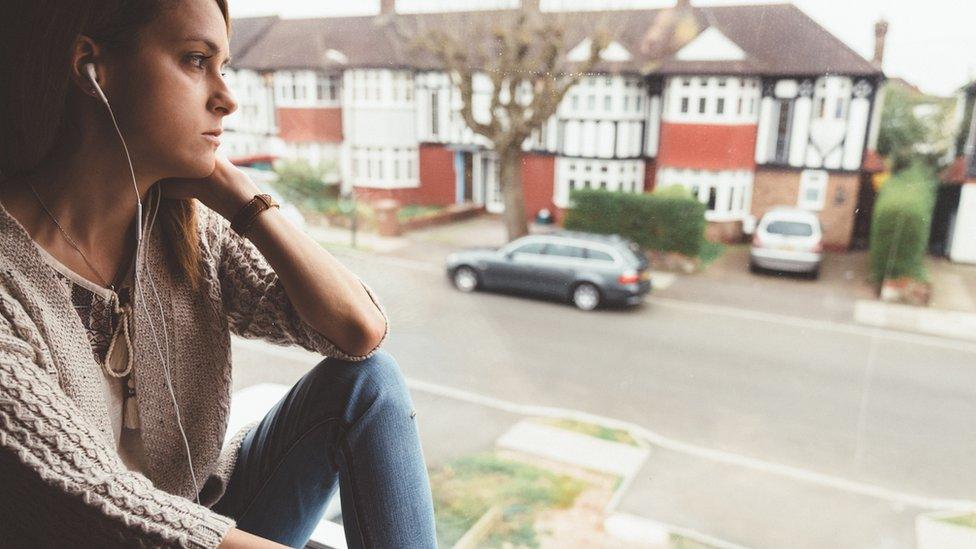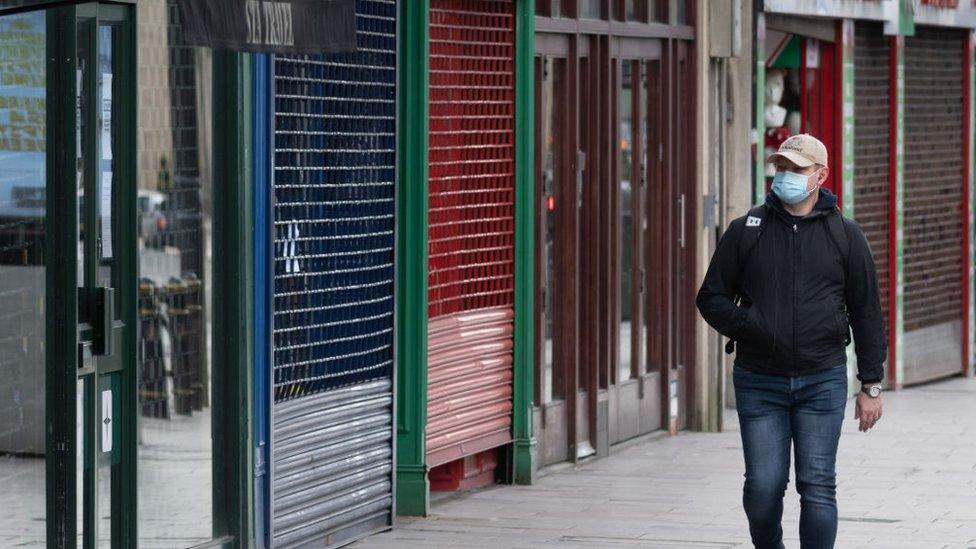Coronavirus: Lockdown psychiatric care 'severely disrupted'
- Published
Some patients, like David, have seen their symptoms change since lockdown began
Isolation during lockdown is exacerbating psychosis in some patients, a consultant psychiatrist at a leading mental-health trust warns.
Steve Church said the South London and Maudsley NHS Trust had now had to shift its focus to crisis management.
He leads the psychosis recovery team, one of the trust's five teams helping patients struggling with their mental health during the coronavirus pandemic.
Some have had to move homes to isolate and many no longer visit the clinic.
Dr Church, who has been working in the field for almost three decades, said: "In normal times, and we're not in normal times, the whole treatment is about trying to help people not self-isolate, trying to help people to re-engage with society.
"Self-isolation is one of the red flag-hallmarks of somebody becoming unwell in the first place, where they take themselves into a psychosis-induced lockdown."
'Nasty things'
One of his patients, Tracey, told Dr Church, in a phone consultation, staying at home had increased her hallucinations.

A SIMPLE GUIDE: How do I protect myself?
AVOIDING CONTACT: The rules on self-isolation and exercise
HOW A VIRUS SPREADS: An explanation
LOOK-UP TOOL: Check cases in your area
TESTING: Can I get tested for coronavirus?

"It's been quite daunting," she said.
"I do hear the voices a little bit more now.
"They're domineering - they tell me to run across the road and they're following me and they say horrible and nasty things."
Louder voices
For the patients whose conditions are even more serious, phone consultations are not enough.
And the team has to had to undertake outreach work - including doorstep assessments and those made while walking with patients in open spaces - to make sure they are coping.
It also encourages "crisis self-presentation", for patients whose mental health has deteriorated.
One of these, David, said he had decided he had to visit the clinic in person because being isolated had led to him hearing more and louder voices giving him commands.
'I'm dirty'
"The voice at the moment is showing me a very difficult path," he said.
"I look clean - but inside I'm dirty.
"The command is something new and the doctor is going to work through with me for me to understand why the command is only negative."
The 'Adult Psychiatric Morbidity Survey 2014', which was published in September 2016, estimated the prevalence of psychotic disorder in England at 0.7% of adults aged 16 and over.
And before lockdown, most were receiving treatment and able to live a normal life.

Steve Church says in normal times the treatment for psychosis discourages isolation
But community psychiatric nurse Abi Smith, another member of the team, worries patients with severe mental health could now spiral out of control.
"Having a support network really helps them," she said.
"The point when that's not there, you know they're having to deal with far more than the average individual would be managing at the moment."
Correction 22 November, 2022: This article was edited to reflect that the estimated prevalence of psychotic disorder in England is 0.7% of adults aged 16 and over.
Related topics
- Published16 April 2020

- Published4 May 2020
